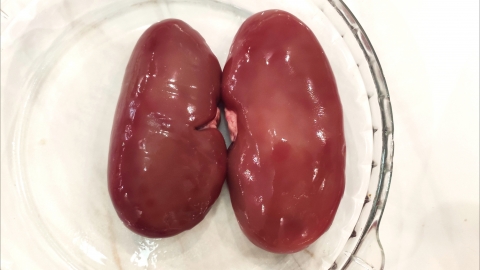Is eating pig kidney good for the kidneys?
Generally speaking, eating pig kidneys in moderation can be beneficial to the kidneys. The detailed analysis is as follows:

From a nutritional perspective, pig kidneys are rich in protein, vitamin A, iron, phosphorus, selenium, and other nutrients. Protein is an important component of body cells and can aid in the repair and regeneration of kidney cells. Vitamin A helps maintain the normal structure and function of epithelial tissues and is beneficial for the health of epithelial cells in the urinary system. Minerals such as iron, phosphorus, and selenium participate in various metabolic processes in the body. Selenium, in particular, is an important antioxidant that helps kidney cells resist damage from free radicals, reduces oxidative stress, and thus provides a certain degree of protection for the kidneys. However, pig kidneys also contain high levels of cholesterol and purines, and excessive consumption may lead to elevated blood lipid levels and increased uric acid levels, which can increase the metabolic burden on the kidneys and be detrimental to kidney health.
In daily life, to better maintain kidney health, it is recommended to control the intake of pig kidneys to avoid impairing kidney function due to excessive consumption of cholesterol and purines. At the same time, maintaining a balanced diet, eating more fresh vegetables and fruits, whole grains, high-quality proteins, and ensuring balanced nutrition can provide comprehensive nutritional support for the kidneys and help maintain their normal physiological functions.





